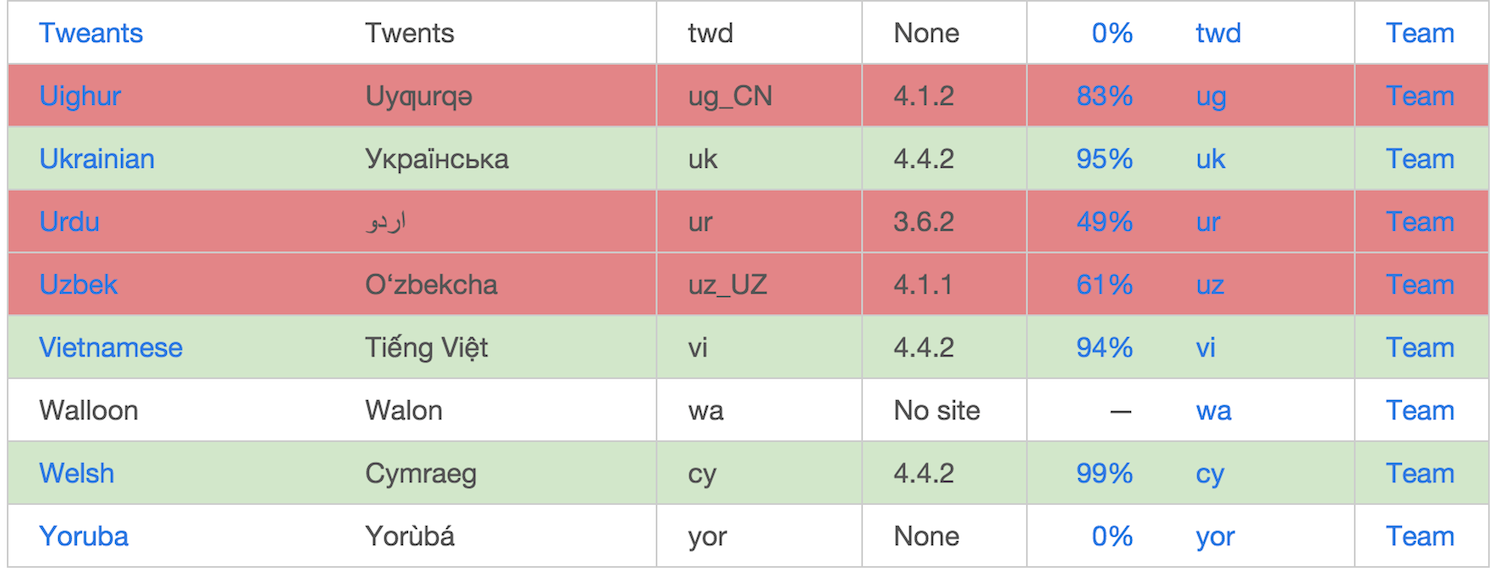
The WordPress Polyglots team is planning its first ever Global Translation Day to be held April 24, 2016, in every timezone around the globe. The 24-hour translation sprint will start at dawn in the East and end in the West. In addition to translating strings, organizers are also looking to grow the translation teams and educate new translators. They have identified the following three goals for the event:
- Show people who are interested in translating WordPress in their language how to get involved
- Translate and validate the waiting strings for current projects under the supervision of the current General translation editors
- Add more general translation editors to different translation teams
The Global Translation Day is an ambitious undertaking that involves coordinating a 24-hour live stream of tutorials about translating WordPress in different languages, as well as local, on-site contributor teams.
“Not very many people know how big the translation efforts around WordPress are, how dedicated our volunteer Translation Editors are to making sure we have quality, consistent software translations,” Polyglots contributor Petya Raykovska said. “We wanted the Global Translation Day to shed a bit of light on that and especially on the local teams.
Growing the WordPress Platform by Making it More Internationally Accessible
The Polyglots team is slowly chipping away at the world’s most widely spoken languages to provide core, theme, and plugin translations for users in their own languages.
“We have many languages that need a lot of help,” Raykovska said. “Our Japanese, German, French, Dutch, Spanish, Portuguese teams are amazing, these are active 100% translated locales,” she said. “But when it comes to plugin and theme translations, that’s where the demand is greatest.
“On the other hand, we have languages that need help for WordPress core. All the Indian languages can use a huge push, our African and Asian languages need help.”
The progress of each locale is tracked on the Translation Teams page, displaying the percentage of strings translated for each.
“Some of the biggest languages in the world are represented in this chart and if we got them to 100% that could have a huge impact on WordPress itself,” Raykovska said.
“If you remember the big jump WordPress did in 2011 and then in 2014, when international downloads surpassed English downloads, half of those international downloads were for Japanese,” she said.
“Now imagine what impact languages like Chinese, Hindi (and other Indian languages) and other languages in countries where English is not a default language, can have. The Global WordPress Translation day is about making WordPress accessible to more people and also about helping the platform’s growth,” Raykovska said.
The Polyglots are calling all multilingual contributors to join in the event. Raykovska reports that so far they have more than 60 teams committing to take part, with 10 mini-contributor days held locally and more incoming. The Polyglots are also planning to host remote events where local teams use their own Slack channels to onboard contributors and work on translations.
Contributors can choose from a number of ways to get involved. You can record a video in your language for the promotion clip, volunteer to do a live stream talk about translating WordPress into your language, organize a local contributor day, or get involved with the main organization.
If you have the language skills to participate in the translation sprint, it’s one of the easiest ways to start contributing to WordPress and help prepare the platform for its next major international leap. Join #polyglots on Slack to connect with the team.

Do you know if effort will extend outside of core WP to things such as plugins and themes? Especially now language packs have been rolled-out it’d be great to see my plugin(s) available in different languages.